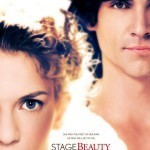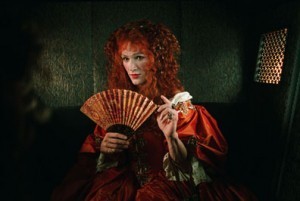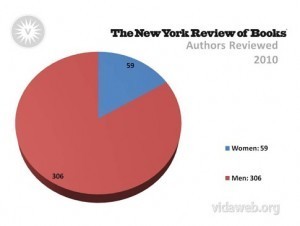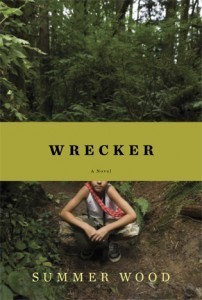Sandra Gulland's Blog, page 36
March 9, 2011
Magic letters: V.A.—what a Virtual Assistant can do for you
I've mentioned my VA on this blog a few times. What a godsend she has been! The wonderful Diane!
But finding her was not easy. When I was on tour in San Francisco several years ago, I met with the wonderful historical author C. W. Gornter. As authors do, we talked about how impossibly busy we were. He said, "You need a VA, a Virtual Assistant. Google it."
I searched on-line, but without success. Then I got a newsletter from an author, signed by her assistant: ah ha! I wrote back: Who are you? What do you do? How can I find you? The author confessed that she was her own assistant, in disguise (quite a few authors do this, surprise, surprise). But she did know of a VA: the wonderful Diane Saarien.
Voilà, I had my Virtual Assistant. The letters V.A. felt just as good on my tongue as the words "my agent," "my editor," "my publisher." Diane immediately launched me into a lengthy and wonderful blog tour for the paperback publication of Mistress of the Sun.
Since then she has done many other great things: answering my reader email when my load is too heavy, sending out books to bloggers, sending out signed bookplates to fans, pitching me to festivals. She's a WordPress pro, so she's going to be able to help me with my website. There's nothing Diane can't do!
She's fast, she's good, she's nice, and she's reasonable. I started raving about her to authors. Their publicists in turn were so impressed they started recommending her to their authors.

Now Diane has so much work she has formed the Saima Agency with her husband Peter. I'm so pleased.
Bravo, Diane and Peter!

If you had an assistant, what would you have him or her do?
Magic letters: V.A.—what a Virtual Assistant can do for you is a post from: Sandra Gulland's blog.
March 7, 2011
Writing as juggling—and enchantment

For me, this is image by Michael Parkes of a juggler expresses perfectly the challenge of writing: enchantment.
I finished the last "bit" of The Next Novel a week early. In the last scene, my heroine actually juggles. In my covering note to The Task Master, I wrote, "It's wobbly yet." And it is, but it's closer. One of these drafts the story might actually stay afloat.
Awaiting a verdict, I'll return to Parts I, II, III tomorrow. For now, I'm enjoying getting some things in order: the Wi-Fi connection working on my iPad again, for one. Catching up on emails. Reading, thinking about enchantment.
How is it done? What do you find enchanting?
[Image discovered in a post on the wonderful blog, Beyond the Margins. Thank you.]
Writing as juggling—and enchantment is a post from: Sandra Gulland's blog.
March 1, 2011
Wrecker: a book review
Yesterday I finished reading the novel Wrecker by Summer Wood.
First, you have to envy a woman with such a great name. Second, you can fairly easily predict that she has hippy roots.
I'm in the depths of writing now, and I find it difficult to find novels with a sufficiently enchanting voice to snare my restless spirit. This one did from the first page.
I've converted to reading books on my iPad, but I'm going to buy at least one print copy of this novel to pass around to friends. Yes: it's that good. I want to shout about it — once I come out from under its spell, which lingers.
The subject of the story is the rearing of a motherless boy—three years old at the opening of the novel and eighteen at the end—by what I would call an "intentional" (i.e. communal) community in the far reaches of northern California. It's a dramatic, heart-rending and—yes, it's fair to say—ultimately a happy story, although the word happy seems woefully inadequate to describe its fullness of heart.
The back-to-the-land setting is authentic, which I found refreshing. The author clearly loves each and every one of her characters. They are flawed; they are profoundly heroic. Wrecker, the boy at the core, is … well, he's quite "a package." As he matures, the word beautiful is often used to describe him. I don't think I've ever read a novel that captures a male spirit—both its tenderness and strength—so well: in a boy, in a teen, in a man.
What I do not see mentioned in the reviews (so far)—and it's something I found exceptional in this novel—is the voice, that elusive intelligence that informs literary fiction. As a writer, I'd call it jaw-dropping prose. Sorry, that's not very elegant: but there it is. Pace, details, dialogue: all spare, all rich and perfectly enchanting.
It's hard to single out examples, but I'll slip in a few sentences from the first page:
Len stood waiting for his life to change.
Okay, you have to admit that's a wonderful line.
He was a skinny man with a long face that showed its creases despite the stubble on his chin and cheeks …
I can picture this man—can't you?
…and he kept moving his hands from the brim of his cap to the pockets of his jeans as thought he couldn't be held responsible for what they might do if left unsupervised.
A great image, original and telling.
In an interview, Summer Wood said that it took her close to a decade "of intermittent work, and many many drafts, and reams of discarded pages to get this novel finished." It shows in the craft.
Her mother charmingly weighs in here, and here's the trailer.
If you read this novel—and I hope you do—let me know what you think.
Wrecker: a book review is a post from: Sandra Gulland's blog.
February 26, 2011
The Slough of Despond (the swampy middle)

I call the messy stage of a novel The Swamp, and most often it's in the middle.
I really related to "The Slough of Despond" post by Barbara O'Neal on Writer Unboxed (an excellent blog for writers).
She writes:
I'm up to my neck in a first draft that has a million dead ends and weird transitions and scenes that will never make the final cut. The language in places is so much worse than pedestrian that I would die of embarrassment if anyone, even my very best friend, read it.
Her husband calls the messy manuscript stage "the teenager." I know of another writer, who, when she hit the Slough of Despond, her husband said, "You're on Chapter 5 already?"
I'm happy-go-lucky now, fixing things in the manuscript here and there, wandering off into endless research, waiting for the next heavy brick to land from The Task Master (editor Dan). Then, no doubt, I will be in the Slough of Despond yet again — or, dare I think, is that swampy bit behind me? (Dream on.)
Are you in a swamp, right now, the Slough of Despond? How do you deal with it? What's your name for it?
The Slough of Despond (the swampy middle) is a post from: Sandra Gulland's blog.
February 25, 2011
Shhhh: writer at work

I laughed seeing this cartoon on Debbie Ridpath's blog: I was wearing my noise-cancelling headphones at the time (over earplugs). You have to block out the world in order to allow the imaginary world to bloom.
The subject of the blog—Podcasts for Writers—is well worth checking out. A number of good ones are mentioned, including my personal favourite, Writers on Writing (shown as Pen on Fire). Writing is isolated work; it's wonderfully comforting to listen to other writers talking about the craft.
Cartoon @Debbie Ridpath, Creative Commons
Shhhh: writer at work is a post from: Sandra Gulland's blog.
February 24, 2011
Research: the perfect excuse for the procrastinating writer

I've been obsessed for two days, trying to find the hôtel (home) of la comtesse d'Armagnac (Catherine de Neufville de Villeroy), who gave a very fancy party for the King and select members of the court on December 14, 1665.
This fête features in the novel I'm writing now because my heroine's mother plays in the somewhat sneaky production of Racine's Alexandre the Great offered there.
(Sneaky because the play has just opened at Molière's theatre, and this production is given by his arch rival, the actors of the Bourgogne theatre. A few days later the Bourgogne will shock Molière's troupe by opening the play themselves. In consequence, Molière, Racine's mentor, will never speak to the young Racine again.)
It's hard to write a scene if you don't know where it's happening. Guessing is allowed when the information is scarce, but I prefer it to be an educated guess. What plagues me is that I know that this information is out there, somewhere, and it becomes such a tantalizing puzzle trying to find it. I've not found her hôtel (yet), but I've certainly found out quite a bit about Madame la Comtesse. (Fourteen children and still a beauty.)
It's a guilty obsession, research: I know I'm avoiding getting on with the revision of the novel; this scene is not that important, after all. Yet even so: I persist. Is there an AAA for researchers?
Research: the perfect excuse for the procrastinating writer is a post from: Sandra Gulland's blog.
February 22, 2011
On research into 17th century witchcraft: an interview with author Mary Sharratt
Readers of this blog might be interested in this research-focussed interview with historical fiction author, Mary Sharratt, on my research blog, Baroque Explorations:
On research into 17th century witchcraft: an interview with Mary Sharratt.
On research into 17th century witchcraft: an interview with author Mary Sharratt is a post from: Sandra Gulland's blog.
February 21, 2011
Confessions of a deadline drop-out
Sorry for the absence, but I fell off the globe for a bit: deadline drop-out.
The way I've been working with The Task Master (editor Dan)—or, rather, the way he has been working me—is in segments, 80 to 140 pages of The Next Novel at a time. Each time, finishing a revised segment has had all the intensity of finishing an entire novel: sleepless nights, dazed expression, constant preoccupation with the story in front of me.
I sent finally sent off this last segment—all of Part III (I'm getting there!)—on Saturday afternoon, after a creatively stimulating brunch with author C.M. Mayo. I attended her writing workshop the next day at the San Miguel Writers' Conference: I'll be using a number of her suggestions as I begin the more refined layers of the revision.
As The Task Master prepares the next segment (might it actually be the last?), I've cycled back to the beginning of the novel, making changes. I've promised the manuscript to my agent April 1st: that's not far off, but it's a deadline I'd really like to meet.
I've so many things I want to discuss here: the feedback on my title (which I threw open to readers of my newsletter), ideas that Catherine and I tossed about about publishing and promotion, her fantastic workshop, some experiments I've been doing with ads on FaceBook and StumbleUpon, some great blogs I've discovered, great books ….
But there I go, on the amble …
Isn't that a wonderful expression? I discovered it this morning, researching 17th century theatre vocabulary. And no, it has nothing to do with theatre.
Confessions of a deadline drop-out is a post from: Sandra Gulland's blog.
February 4, 2011
Stage Beauty

I just watched "Stage Beauty"—a wonderful movie about the changing world of 17th century theatre in London. I loved it. I believe I've found my perfect Petite in the actress Claire Danes.
There are a number of historical shifts and twists, nips and tucks, but all in the service of good drama. Somehow we forgive this in a movie, but wouldn't in a novel. (Why is that?)
Although the movie captures the spirit of the theatre world of the time (I think), to have been perfectly accurate there would have been dandies with paid seats on the stage. This was distracting then, and it would have been distracting in this movie, as well.
I adored the representations of Nell Gwyn, Charles II (with all his dogs), Peyps. The costuming was terrific. Even though hats were not yet worn, I loved seeing them.
There are interesting differences between French and English theatre of this period, and the relatively late arrival of women on the English stage is one of them; women had long been on the stage in France. In France, male actors who played female roles did so for comic effect. Very different from the beautiful main character of this film.

To see the movie trailer: click here. I had the pleasure of buying it on iTunes and watching it on my iPad.
Stage Beauty is a post from: Sandra Gulland's blog.
February 3, 2011
Women writers, women reviewers: still invisible.
I've long been a "counter." When I pick up a book review magazine or newspaper book pages, I scan the headlines. How many female reviewers? How many books by women reviewed?
This began years ago, when I looked at an issue of The New York Review of Books and realized with a shock that there was only one woman represented in the entire issue. For years there were heated discussions on-line by members of the Writers' Union of Canada.
Recently, VIDA, an association for women in literary arts, published shocking graphs showing the inequality clearly. For example:

An on-line article on Slate, "Women at Work," concludes:
The world of novels, we often hear, is a feminine one—book buyers are predominantly women; novels and memoirs by women and about women's lives often do extremely well commercially. (Think of Eat, Pray, Love and The Lovely Bones.) So you might shrug and say—what's the problem? But VIDA's study raises questions about how seriously women writers are taken and how viable it is for them to make a living at writing.
What's the problem? What do you think?
Women writers, women reviewers: still invisible. is a post from: Sandra Gulland's blog.




